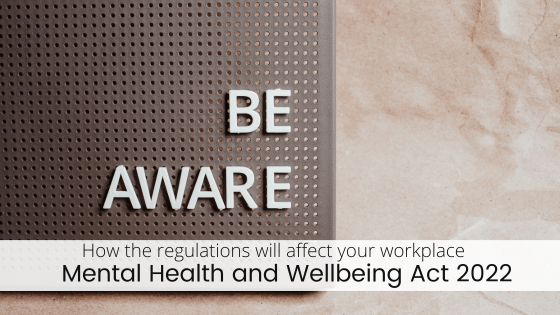Are managers and team leaders responsible for empathy in the workplace? Or, is it just a happy accident resulting from the mix of characters in your workplace? If you are knowledgeable and proactive, then it will be an accident of employee engagement.
Do you know of someone now that is struggling? You don’t need to have been in their shoes to be able to show empathy, nor to be able to teach others. When a manager understands mental health issues — and how to respond to them — it can make all the difference for an employee professionally and personally.
Here are some simple suggestions to help you drive a more empathetic culture.
Pay attention to language. We all need to be aware of the words we use that can contribute to stigmatizing mental health issues: If you hear comments like “She’s totally schizo today!” “He is being so bi-polar this week — one minute he’s up, the next he’s down.” Take action, take the person aside and let them know that through the ears of a colleague who has a mental health challenge, they will sound like indictments of them personally. Ask them how likely they would be to open up about a disorder, or ask for time to see a therapist after hearing these words? Getting people to imagine the impact of what they are saying is a first step to building an empathetic culture.
Rethink “sick days.” If you have a spinal problem, we don’t say “just push through” or “learn to deal with it?” We recognise it’s an illness that needs treatment and recovery. If you have the flu, we tell people to go home and rest. But how do we react to emotional outbursts or other signs of stress, anxiety, or manic behaviour? We need to adopt a similar understanding – we need to get more comfortable with the idea of suggesting and requesting days to focus on improving mental as well as physical health. We need to become accustomed to using EAP providers in the same relaxed way we use our local doctor.
Encourage open and honest conversations. This means making safe spaces for people to talk about their own challenges, past and present, without fear of being called “unstable” or left out when new opportunities come up. Our Aussie culture traditionally pushes ‘tough it out’ rather than ‘talk it out’. We are changing but we have to work to overcome the fear of being judged or excluded as a result of opening up. Leaders can set the tone for this by sharing their own experiences, or stories of other people who have struggled with mental health issues, gotten help and resumed successful careers. Encourage everyone to speak up when feeling overwhelmed or in need and offer EAP support.
Be proactive. Not all stress is bad, and people in high-pressure careers often grow accustomed to it or develop coping mechanisms. However, prolonged unmanageable stress can contribute to worsening symptoms of mental illness. Employee surveys often record a high proportion of responses that state employers don’t do enough to prevent or alleviate burnout. It is important to recognise that employees will often spend more time on travel to work, pay more for parking, have caring roles, on top of stressful work. It is important to offer access to programs, resources, and education on stress management and resilience-building, in addition to the strategies above.
Train people to notice and respond. Does your office have a medical kit around? A first aid officer? Knowing about and training people in Mental Health First Aid, belongs in the same kit box. This national program is proven to increase people’s ability to recognize the signs of someone who may be struggling with a mental health challenge and connect them to support resources. It offers guidance on listening non-judgmentally, offering reassurance, and assessing the risk of suicide or self-harm when, for example, a colleague is suffering a panic attack or reacting to a traumatic event. Such difficult, emotionally charged conversations come at unexpected times and it’s important to be as capable of responding as you are with a medical first aid response.
Be proactive with your EAP provider. Check their credentials. Do they have a holistic focus on wellness and thriving? Creating the ideal workplace environment can be really tricky, especially if you lack the expertise or time required. The team of therapists, at ACT Curious EAP, led by Michelle Trudgen, an experienced Clinical Social Worker, accomplished Cognitive Behaviour Therapist and ACT Trainer, can provide you with a step-by-step, plan to make sure that your employees are engaged in your business and can achieve their full potential at work and at home.
CONTACT US
If you want additional support, ACT Curious can connect you to a behavioral therapist that meets your needs. You can get started today if ACT Curious EAP is offered by your employer.
DISCLAIMER: The content of this blog is not intended to be a substitute for professional medical advice, diagnosis, or treatment.
ABOUT THE AUTHOR
Michelle Trudgen Clinical Director, ACT Curious.
copyright: 22 August 2016






